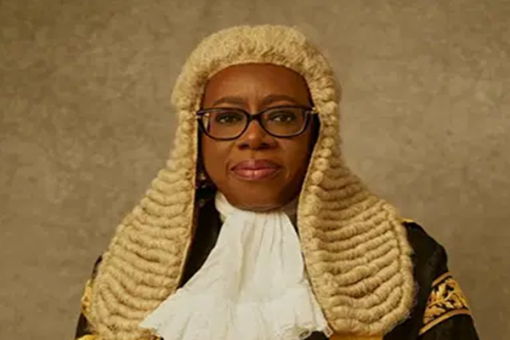BY VIVIAN OKEJEME
The Chief Justice of Nigeria (CJN), Justice Kudirat Kekere-Ekun, on Monday reiterated the need for a proactive, visionary, and responsive judiciary that aligns with the rapid evolution of technology, governance, and social dynamics.
Speaking at the 2025 Roundtable for Heads of Courts held at the National Judicial Institute (NJI), Abuja, with the theme “Leading for Change and Building a Stronger Judiciary,” Justice Kekere-Ekun said the National Judicial Council (NJC) had taken bold steps to institutionalize technological transformation across the judicial system.
She urged heads of courts to reflect deeply on their roles as custodians of justice and stewards of the Constitution, emphasizing that the judiciary remains the cornerstone of democracy and the last refuge of the common man.
“Public trust is the lifeblood of the judiciary. It must be earned daily through conduct, competence, and the consistent demonstration of fairness,” she declared.
The CJN noted that leadership in the judiciary must now be adaptive, innovative, and rooted in integrity. According to her, the speed, accessibility, and transparency of the justice system directly shape public confidence, stressing that justice delayed or perceived as opaque diminishes public trust.
She highlighted the Nigerian Case Management System (NCMS)—a digital platform developed following the adoption of the Judicial Information Technology Policy (JITPO)—as a landmark achievement in Nigeria’s judicial modernization. The NCMS, she said, is designed to digitize case management from filing to judgment, drastically cutting bureaucratic delays and record losses.
“Our institutions must remain resilient and capable of meeting modern demands while preserving timeless values of fairness, independence, and accountability,” she said.
She added that heads of courts occupy positions of influence and must provide courageous, disciplined leadership that resonates across all judicial levels.
In his welcome remarks, the NJI Administrator, Justice B.A. Adejumo, called for collaboration among heads of courts and judicial officers, saying effective cooperation enhances service delivery, eliminates procedural bottlenecks, and ensures smooth justice administration.
“A well-coordinated judicial structure is vital for enhancing justice delivery. As firsts among equals, fostering camaraderie and mutual respect among colleagues promotes synergy and optimizes productivity,” Justice Adejumo stated.

